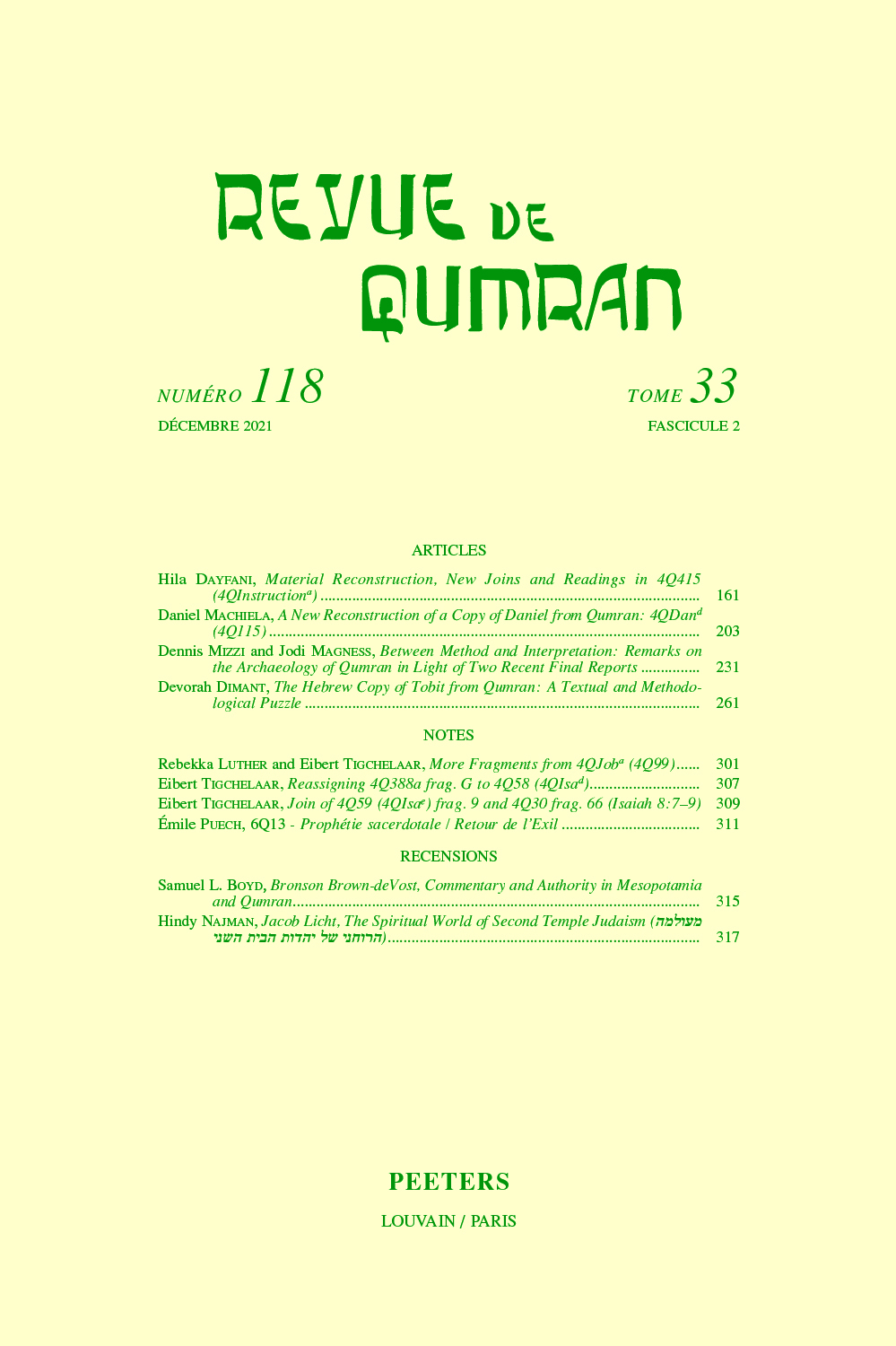 previous article in this issue previous article in this issue | next article in this issue  |

Preview first page |
Document Details : Title: Parabiblical Literature from Qumran and the Canonical Process Author(s): GARCÍA MARTÍNEZ, Florentino Journal: Revue de Qumran Volume: 25 Issue: 4 Date: numéro 100, 2012 Pages: 525-556 DOI: 10.2143/RQ.25.4.3206342 Abstract : After clarifying how the author understands the terms 'parabiblical' literature (namely, as referring to all compositions of the collections of Qumran, except those which later will be incorporated in Tanak) and 'canonical process' (that is, as a development not yet completed in which 'canonical' is understood as authoritative or normative), this article shows what books were considered authoritative or normative within the collection, presenting four of the authority conferring strategies used for this purpose: Divine authority, rewriting, interpretation, and 'the voice of the Teacher'. The essay’s conclusion is that at this time of development in the 'canonical process', all the books which would later form the Torah, or the five books of Moses, were clearly recognized as authoritative and normative (and thus 'canonical'), and that there was a second group of authoritative writings referred to as 'the Prophets'. This group of writings, however, is not identical with the Nebi’im of Tanak, since it also included Daniel and the Psalms. The essay also concludes that other books, as well as the core 'sectarian' compositions, were considered authoritative and normative (and thus 'canonical'). |
|


